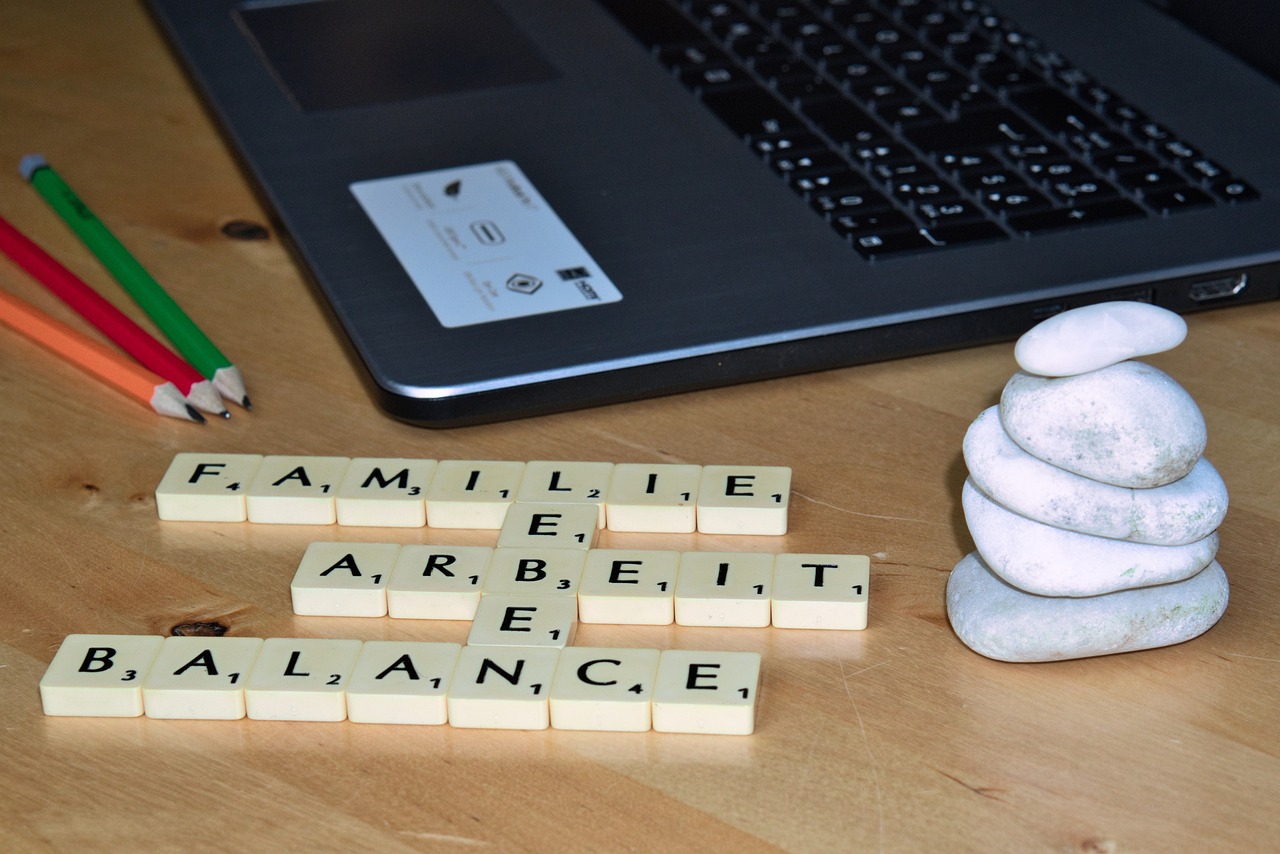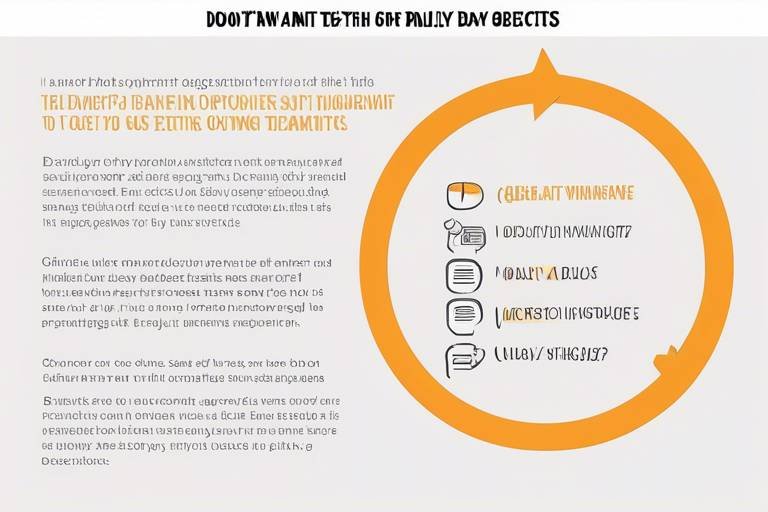The Best Techniques for Reducing Work-Related Stress
Work-related stress can take a toll on both mental and physical well-being, impacting productivity and overall quality of life. Fortunately, there are effective strategies and methods that individuals can incorporate into their daily routines to alleviate stress in the workplace. One of the key techniques is engaging in regular exercise and physical activities. By incorporating movement into your day, you can reduce stress levels, boost mood, and enhance mental clarity. Whether it's a brisk walk during lunch break or a yoga session before or after work, physical activity can be a powerful tool in combating work-related stress.
Mindfulness and meditation are also valuable practices for managing stress in a work setting. Taking a few minutes each day to focus on the present moment, breathe deeply, and clear the mind can help cultivate a sense of calm, improve focus, and build resilience against stressors. These techniques not only provide immediate relief but also contribute to long-term emotional well-being.
Effective time management and prioritization are essential skills for reducing workload pressure and enhancing productivity. By organizing tasks, setting realistic goals, and allocating time efficiently, individuals can prevent feeling overwhelmed and maintain a sense of control over their work responsibilities. This structured approach can significantly decrease stress levels and promote a more balanced work environment.
Adopting healthy lifestyle choices is another crucial aspect of stress management. Eating a balanced diet, getting an adequate amount of sleep, and staying hydrated are fundamental in combating the negative effects of stress on the body and mind. A well-nourished and well-rested individual is better equipped to handle the challenges that come with a demanding work environment.
Effective communication plays a vital role in reducing stress in the workplace. By honing communication skills, individuals can express their needs, set boundaries, and address conflicts constructively. Clear and open communication fosters a positive work environment, minimizes misunderstandings, and ultimately lowers stress levels among colleagues.
Establishing a healthy work-life balance is key to preventing burnout and reducing overall stress levels. Setting boundaries between work and personal life allows individuals to recharge, engage in hobbies, and spend quality time with loved ones. By prioritizing self-care and leisure activities, individuals can maintain a sense of equilibrium and resilience in the face of work-related challenges.
Participating in stress management workshops and programs provides valuable tools and techniques for handling work-related stress. These sessions offer insights into stress management strategies, relaxation techniques, and coping mechanisms that individuals can apply in their daily lives. By actively engaging in such programs, individuals can build a robust toolkit for managing stress effectively.
Leveraging support networks, employee assistance programs, and resources is crucial in seeking help, guidance, and emotional support when dealing with work-related stress. Connecting with colleagues, mentors, or professional counselors can offer valuable perspectives, advice, and encouragement during challenging times. Knowing that support is available can alleviate feelings of isolation and empower individuals to navigate stress more effectively.

Exercise and Physical Activity
Exploring effective strategies and methods to alleviate stress in the workplace, enhancing overall well-being and productivity.
Engaging in regular exercise and physical activities can work wonders in reducing stress levels and improving mental health in a work setting. When you move your body, you release endorphins, also known as the "feel-good" hormones, which can help combat the negative effects of stress. Whether it's a brisk walk during your lunch break, a quick yoga session before work, or hitting the gym after a long day, incorporating physical activity into your routine can significantly boost your mood and energy levels.
Additionally, exercise can act as a form of meditation in motion, allowing you to focus solely on the physical activity at hand and temporarily escape from work-related stressors. It provides a healthy outlet for pent-up emotions and helps clear your mind, leading to increased productivity and a more positive outlook on tasks at hand.
Moreover, physical activity can improve your overall health, which in turn can make you more resilient to stress. By taking care of your body through regular exercise, you are better equipped to handle the demands of your job and navigate challenging situations with greater ease.

Mindfulness and Meditation
Exploring effective strategies and methods to alleviate stress in the workplace, enhancing overall well-being and productivity.
When it comes to combating work-related stress, practicing mindfulness and meditation can be powerful tools. Imagine your mind as a stormy sea during a hectic workday, with deadlines crashing like waves. Mindfulness acts as a lighthouse, guiding you to a place of calm amidst the chaos. By being present in the moment and focusing on your breath, you can cultivate a sense of peace and clarity.
Similarly, meditation serves as a mental sanctuary where you can retreat to recharge and reset. Picture it as a serene garden within your mind, where you can plant seeds of tranquility and watch them bloom into a sense of inner peace. Taking even just a few minutes each day to meditate can help you build resilience against work-related stressors, allowing you to navigate challenges with a clear and centered mind.
Integrating mindfulness and meditation into your daily routine can enhance your ability to stay grounded, focused, and emotionally balanced in the face of work pressures. These practices not only reduce stress levels but also promote a sense of overall well-being, enabling you to approach work challenges with a renewed sense of clarity and calm.

Time Management and Prioritization
Exploring effective strategies and methods to alleviate stress in the workplace, enhancing overall well-being and productivity.
When it comes to managing work-related stress, effective time management and prioritization play a crucial role in maintaining a healthy balance. By organizing tasks based on their importance and deadlines, individuals can reduce the feeling of being overwhelmed and increase productivity.
Imagine your workload as a puzzle; each piece represents a task that needs to be completed. By prioritizing tasks, you start with the corner pieces—the most critical and time-sensitive ones. Then, you gradually fit in the other pieces to complete the picture. This approach helps in breaking down complex projects into manageable steps, making the workload more manageable and less stressful.
Additionally, creating a daily schedule or to-do list can aid in structuring your day and ensuring that essential tasks are completed on time. By setting realistic goals and deadlines, you can avoid procrastination and prevent last-minute rushes that often lead to stress.
Moreover, incorporating time management techniques such as the Pomodoro method, which involves working in focused intervals with short breaks in between, can enhance concentration and efficiency. This technique not only boosts productivity but also prevents burnout by allowing brief moments of rest.
Furthermore, learning to say no when necessary and delegating tasks to colleagues can help in prioritizing responsibilities and reducing unnecessary stress. Understanding your limits and capabilities is essential in maintaining a healthy work-life balance and preventing overload.
In conclusion, mastering time management and prioritization skills is vital for combating work-related stress. By effectively organizing tasks, setting realistic goals, and utilizing productivity techniques, individuals can enhance their efficiency, reduce pressure, and achieve a sense of accomplishment in the workplace.
Stay tuned for the answers to common queries about managing work-related stress effectively!

Healthy Lifestyle Choices
Exploring effective strategies and methods to alleviate stress in the workplace, enhancing overall well-being and productivity.
When it comes to combating work-related stress, incorporating healthy lifestyle choices is key. Just like a well-oiled machine operates smoothly, our bodies and minds function best when we provide them with the right fuel and care. Imagine your body as a high-performance car; you wouldn't fuel it with low-quality gas and expect it to run smoothly, right?
One of the fundamental aspects of maintaining a healthy lifestyle is balanced nutrition. Just like a balanced diet is essential for physical health, it also plays a crucial role in mental well-being. Fueling your body with nutritious foods can help boost your energy levels, improve mood, and enhance overall cognitive function. Think of food as the building blocks for your body's performance; providing it with the right nutrients is like giving it premium fuel.
Another vital component of a healthy lifestyle is ensuring an adequate amount of sleep. Sleep is when our bodies repair and rejuvenate, allowing us to wake up refreshed and ready to tackle the day ahead. It's like recharging your phone overnight to ensure it functions optimally the next day. Adequate sleep not only improves focus and concentration but also strengthens our resilience against stressors in the workplace.
Hydration is often underestimated but plays a significant role in maintaining overall well-being. Just as a plant needs water to thrive, our bodies require proper hydration to function efficiently. Dehydration can lead to fatigue, lack of focus, and increased stress levels. By keeping yourself hydrated throughout the day, you're essentially providing your body with the essential fluids it needs to operate smoothly.
Incorporating these healthy lifestyle choices into your daily routine can significantly impact your ability to manage work-related stress. Remember, just as a well-maintained machine performs optimally, a well-nourished and well-rested body and mind can handle workplace challenges with greater ease.
Stay tuned for some commonly asked questions about reducing work-related stress and implementing effective strategies to enhance well-being and productivity.

Effective Communication
Exploring effective strategies and methods to alleviate stress in the workplace, enhancing overall well-being and productivity.
Effective communication is like a well-oiled machine in the workplace, ensuring that all parts work together smoothly. By honing your communication skills, you can express your needs clearly, set boundaries, and resolve conflicts with ease. Imagine communication as the bridge that connects individuals, departments, and teams, fostering collaboration and understanding.

Work-Life Balance
Work-life balance is like a delicate dance between professional commitments and personal well-being. Imagine juggling different colored balls; each ball represents a task, responsibility, or aspect of your life. To maintain balance, you must carefully manage the height and speed at which you toss each ball, ensuring none fall to the ground. Similarly, in the realm of work-life balance, it's crucial to allocate time and energy effectively to both work and personal life without dropping the ball on either front.
Establishing boundaries is key to achieving work-life balance. Just as a fence delineates the boundaries of a property, setting clear boundaries between work and personal life is essential. This separation allows you to fully engage in work tasks during work hours and then switch off to focus on personal activities and relationships without the interference of work-related stressors.
Moreover, work-life balance is not just about time management but also about mental and emotional well-being. It's akin to a seesaw; if one side (either work or personal life) weighs too heavily, the balance is disrupted. By prioritizing self-care activities such as exercise, hobbies, and spending quality time with loved ones, you can restore equilibrium and prevent burnout.
Remember, achieving work-life balance is not a one-time task but an ongoing process that requires constant evaluation and adjustment. Just as a gardener tends to a garden by watering plants, removing weeds, and ensuring proper sunlight, nurturing work-life balance involves tending to your professional and personal needs regularly to promote growth and harmony.

Stress Management Workshops
Exploring effective strategies and methods to alleviate stress in the workplace, enhancing overall well-being and productivity.
When it comes to tackling work-related stress head-on, participating in stress management workshops can be a game-changer. These workshops offer a structured environment where employees can learn a variety of coping mechanisms and relaxation techniques to handle the pressures of their job. Through interactive sessions and expert guidance, individuals can gain valuable insights into stress management strategies tailored to the demands of their profession.

Support Networks and Resources
Support networks and resources play a crucial role in helping individuals cope with work-related stress. These networks provide a sense of community, understanding, and assistance in navigating challenging situations. By leveraging support networks, employees can access valuable resources and guidance to manage stress effectively.
Employee assistance programs (EAPs) are a common support resource offered by many organizations. These programs provide confidential counseling services, referrals to mental health professionals, and resources for dealing with various stressors. By utilizing EAPs, employees can receive the help they need to address work-related stress in a healthy and productive manner.
Moreover, peer support groups within the workplace can offer a platform for employees to share their experiences, seek advice, and receive emotional support from colleagues facing similar challenges. This sense of camaraderie and understanding can significantly reduce feelings of isolation and stress, fostering a supportive work environment.
Additionally, online resources such as webinars, articles, and forums dedicated to stress management can provide valuable information and techniques for coping with work-related stress. These resources offer convenient access to expert advice and self-help tools that employees can utilize to enhance their well-being and resilience.
Building a strong support network both within the workplace and through external resources can empower individuals to proactively address work-related stress and cultivate a healthier work environment. By tapping into these networks and resources, employees can strengthen their coping mechanisms, enhance their emotional well-being, and ultimately thrive in the face of workplace challenges.
Frequently Asked Questions
- What are some effective ways to reduce work-related stress?
There are several effective techniques to reduce work-related stress, such as engaging in regular exercise, practicing mindfulness and meditation, implementing efficient time management strategies, adopting a healthy lifestyle, improving communication skills, maintaining a work-life balance, attending stress management workshops, and seeking support from networks and resources.
- How can exercise and physical activity help in alleviating workplace stress?
Exercise and physical activity can help reduce stress levels by releasing endorphins, improving mood, increasing energy levels, and promoting better sleep. Regular physical activity also helps in managing anxiety and enhancing overall well-being, which can contribute to a more positive work environment.
- Why is mindfulness and meditation beneficial for coping with work-related stress?
Mindfulness and meditation techniques can help individuals develop a greater sense of awareness, focus, and emotional regulation. By practicing mindfulness, individuals can better manage stressors, enhance concentration, and build resilience to navigate challenging work situations with a calmer and more composed mindset.
- How does effective communication play a role in reducing workplace stress?
Effective communication is essential for expressing needs, setting boundaries, resolving conflicts, and fostering positive relationships in the workplace. By improving communication skills, individuals can address issues proactively, prevent misunderstandings, and create a supportive work environment that reduces stress levels and promotes collaboration.



















